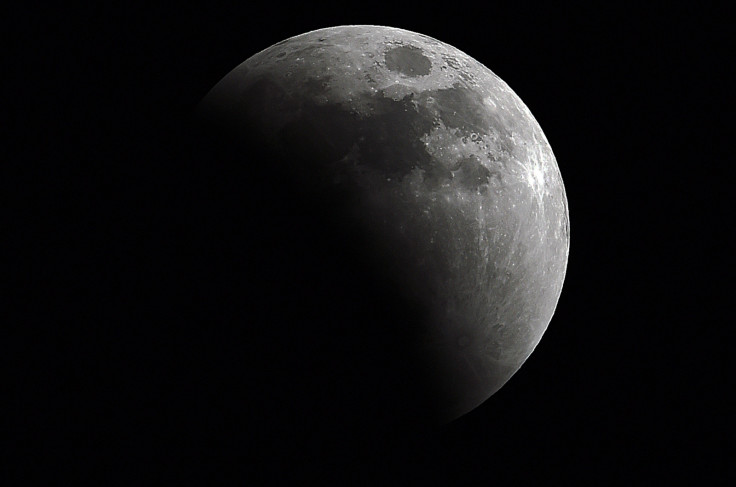SpaceX will send two paying private space tourists around the moon in 2018
"These individuals will travel into space carrying the hopes and dreams of all humankind," SpaceX said.
SpaceX CEO Elon Musk has revealed plans to send two paying private citizens on a flight around the moon in 2018 using a Dragon 2 spacecraft and the new Falcon Heavy rocket. The massive new Falcon 9 rocket with two additional first stage boosters is set to launch its first test flight this summer.
"Like the Apollo astronauts before them, these individuals will travel into space carrying the hopes and dreams of all humankind, driven by the universal spirit of exploration," the company said in a statement. "We expect to conduct health and fitness tests, as well as begin initial training later this year."
The space flight company said the two individuals, whose names have not yet been disclosed, have already paid a "significant deposit" for the moon mission.
It will mark humans' return to deep space for the first time in 45 years, the company noted, where they will "travel faster and further into the Solar System than any before them".
In a conference call with reporters, Musk said the trip will involve "a long loop around the moon" and take around a week, travelling about 300,000 to 400,000 miles into space, The Guardian reported. In 1970, the Apollo 13 astronauts travelled a record 249,000 miles. The flight will approach the moon's surface without actually landing on it before it returns to Earth.
The two private citizens approached SpaceX last year and already know each other, Musk said, noting that they are both "very serious" about the flight. He also noted that the passengers, who will be the only people on board the spacecraft, were "nobody from Hollywood".
While the cost of the mission has not yet been disclosed, Musk said it was "comparable" to the cost of a crewed mission to the International Space Station.

Musk said the mission would be dangerous but both customers do have "their eyes open" about the risks that come with such a mission.
"We're doing everything we can to minimise that risk, but it's not zero," Musk said. The Dragon spacecraft carrying the crew will be automated, he said. The passengers will not be in charge of piloting the spacecraft, but will undergo training for emergencies.
Fly me to the moon ... Okhttps://t.co/6QT8m5SHwn
— Elon Musk (@elonmusk) February 27, 2017
SpaceX said other flight teams have also expressed strong interest and expects to launch similar missions in the future.
"Additional information will be released about the flight teams, contingent upon their approval and confirmation of the health and fitness test results," the company said.
In 2014, Nasa awarded SpaceX and Boeing contracts to fly astronauts to the International Space Station. Musk said Nasa would get first preference if the space agency expressed interest in taking its own astronauts on the flight.
"Nasa always has first priority so if Nasa decides to have the first mission of this nature be a Nasa mission, then of course Nasa would take priority," Musk said.
SpaceX will require a licence with the Federal Aviation Administration for the private mission.
SpaceX could not do this without NASA. Can't express enough appreciation. https://t.co/uQpI60zAV7
— Elon Musk (@elonmusk) February 28, 2017
Nasa said in a statement that it "commends its industry partners for reaching higher".
"We will work closely with SpaceX to ensure it safely meets the contractual obligations to return the launch of astronauts to US soil and continue to successfully deliver supplies to the International Space Station," the agency said.
SpaceX plans to send one uncrewed Dragon 2 capsule to the ISS later in the fourth quarter of 2017 and a crewed Dragon 2 flight to shuttle Nasa astronauts to the ISS in Spring 2018 as part of the Commercial Crew Programme. The ambitious lunar orbit mission is expected to launch about six months after that.
The spacecraft will lift off from the Kennedy Space Center's historic Pad 39A - the same launchpad used by the Apollo missions. SpaceX recently used the pad to launch its unmanned Dragon capsule packed with supplies to the ISS. However, the Dragon cargoship aborted its planned rendezvous with the ISS due to a GPS error. It successfully docked on its second try on Thursday.
"Designed from the beginning to carry humans, the Dragon spacecraft already has a long flight heritage," the company said. "These missions will build upon that heritage, extending it to deep space mission operations, an important milestone as we work towards our ultimate goal of transporting humans to Mars."
© Copyright IBTimes 2025. All rights reserved.





















